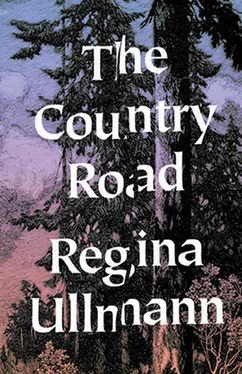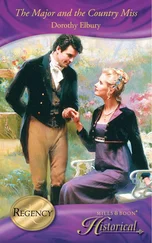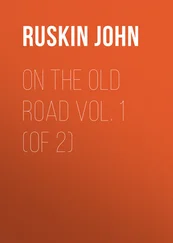Regina Ullman - The Country Road
Здесь есть возможность читать онлайн «Regina Ullman - The Country Road» весь текст электронной книги совершенно бесплатно (целиком полную версию без сокращений). В некоторых случаях можно слушать аудио, скачать через торрент в формате fb2 и присутствует краткое содержание. Год выпуска: 2015, Издательство: New Directions, Жанр: Классическая проза, на английском языке. Описание произведения, (предисловие) а так же отзывы посетителей доступны на портале библиотеки ЛибКат.
- Название:The Country Road
- Автор:
- Издательство:New Directions
- Жанр:
- Год:2015
- ISBN:нет данных
- Рейтинг книги:5 / 5. Голосов: 1
-
Избранное:Добавить в избранное
- Отзывы:
-
Ваша оценка:
- 100
- 1
- 2
- 3
- 4
- 5
The Country Road: краткое содержание, описание и аннотация
Предлагаем к чтению аннотацию, описание, краткое содержание или предисловие (зависит от того, что написал сам автор книги «The Country Road»). Если вы не нашли необходимую информацию о книге — напишите в комментариях, мы постараемся отыскать её.
, largely set in the Swiss countryside, the archaic and the modern collide, and "sometimes the whole world appears to be painted on porcelain, right down to the dangerous cracks." this delicate but fragile beauty, with its ominous undertones, gives Ullmann her unique voice.
The Country Road — читать онлайн бесплатно полную книгу (весь текст) целиком
Ниже представлен текст книги, разбитый по страницам. Система сохранения места последней прочитанной страницы, позволяет с удобством читать онлайн бесплатно книгу «The Country Road», без необходимости каждый раз заново искать на чём Вы остановились. Поставьте закладку, и сможете в любой момент перейти на страницу, на которой закончили чтение.
Интервал:
Закладка:
But outside the scent is drifting on the air. It wafts through the rooms, across the empty platters arranged on the credenzas, it hides in a bouquet of flowers. But perhaps it finds a little bunch of strawberries in a glass jar and collects around them, growing into a large, invisible, aromatic bouquet.
Oh, if there were angels that lived on fruit alone, their arms folded over their breasts, they would eat the ripe fruits from the stalk where they hung and waited, angels whose incense would be the fragrance of flowers and fruits.
But nowhere is this the case, this kiss must remain in the realm of the unfulfilled.
In the northward-facing rooms, the day ascended only gradually to its peak. The shadow of the foliage still fell heavily into the sitting room, colliding with it. The lightest things were the real sounds, the canary hopping up and down, up to its perch and then down to the sand and then up to its perch again. And the clock, always the clock; but the clock again, with its numbered hours that only mattered in the morning and around midday, pounded like the pulse in a mother’s freshly washed hand, resting for a moment in her lap. When such a room has been aired out and freshly made up by a mother, it is as if a child were lying there in a cradle. Everything hums at this early hour.
The curtains, though, hang motionless in their bluish folds. The narcissus is reflected in the windowpane. The loving look that the mother cast back on the room before she dutifully left, returning its greeting, hangs in the air.
And the shouts that filter in from the street have no place here: nor does the wagon that inscribes the road outside with its slow roll. That is a script of its own. These fully written tablets are always held up for the room to see. But the room does not see them. The day inside has its own currency.
Then, I can’t remember, drummers and pipers passed by, suddenly all the windows were open, and someone who was already making his way again down the steps and through the corridors called out, recollecting his happiness: “Oh, strawberries!”
Yes, their scent was there, and the silence, too, it was precious. .
We children came home. We were small and still unfamiliar in that street. Only the nearest neighbors knew what clothes we wore, what we ate from day to day, how our mother was. . Those who lived further down the road only knew our name, they tried it out on each of us, the way people call young animals to them, which then go on their way once they see that this is not their master.
So we, more knowing even than older people and yet less real than anything, gradually made our way home that day. We had brought the garden with us, so to speak. There was space for it in this big, wide parlor. And the room had been alone long enough. The sun-circled strawberries were firmly in our minds. It was as if someone had held them before our eyes. Not scattered about, as we see them today and tomorrow, but the way that only the birds surely see them, with their berry-round eyes.
But we weren’t just thinking about the fenced-in garden with the little rose bushes, with the wreaths of strawberries, with the fragrance of chestnut blossoms. The street itself was on our minds. We played there with our hands even while they lay waiting on the tables, as children’s hands will before lunch. We didn’t speak. The gold of the midday sun called for silence. But our mother came. The narcissus flowers were ruffled by the sudden draft, the curtains floated up in their white house dress. Now we could speak and eat. Perhaps it was nothing but hunger and weariness. . To be sure, we were hungry and weary, but still we had no desire to speak and eat. It was a true witching hour around midday. Even mother’s face didn’t seem to be there. It was still over the stove.
Not a single sweet word was to be found there, and it could have been just an everyday word — we felt no need at all to please each other, we simply loved each other — but even those daily words could not be found.
It’s a strange thing about human thoughts. If I told someone this story, he would probably have trouble saying at this point what it was about, since nothing had been thought yet, nothing had been done. It had only been felt: just down the street, where the houses ended, was the small strawberry garden, pierced through by thousands of the sun’s trembling arrows. And its ripe blood seemed to be measured in hours. And its leaves offered drowsy cover. The fragrance was flowing. We knew: one minute we would smell the chestnut flowers with bees humming around them, the next a round bed of narcissus, the next the gentle scent of pansies. But when the strawberries floated over to us again, this meal seemed bleak and burdensome, far from inviting; we wanted to stand up and go.
On workdays there was no dessert for us. And so our proper, homely meal was no match for this June day. We stood as if caught in a small cage of spring and summer.
And our mother, young and grown at once, had firmly closed her heart to all those fenced-in gardens. Her face offered no intercession. Particularly where the narrow garden around our own white house was concerned, she thought that it fell outside the realm of her experience, and so she advised us to play in the streets and gardens further along. After all, the small garden door might suddenly give way. Who knew the magic of its summer pleasure. .
Perhaps you will argue that the three of us had never learned to go without. But what does it mean to go without — assuming that we really couldn’t do it — if not to take pleasure in looking at things. We returned from our trips to market feeling sated, and often we hadn’t bought a single bouquet, a single basket of early cherries. And the treasure chest of our minds was wide open. But the little mirror inside that chest had only to reflect the ground; it showed the stand piled high with fruit and vegetables. But we felt how that world, like jewelry and old music, was transformed and passed over into us.
But the strawberry garden did not want to be transformed. It was the garden of all gardens; no one’s sweat and toil, no one’s property, and yet closed off, seemingly given over to itself. It was basically only a small front garden that looked down onto a round plaza and the broad street below, but it emerged powerfully from the earth: it had already conquered our hearts. From that moment on, all the other things no longer worked for us.
But what that can mean for a child, to be without a world. .
Meanwhile we still played in the sand in the park, as mother had told us to do. Our small wooden wagon was loaded with stones. There were stones everywhere. Stones in colors and forms more varied than thoughts. There seemed to be a stone for every stroke of fancy, for every grasp. But they were hard nonetheless, stones through and through. In the end that drove us away from that place. This human language of renunciation and utter solitude was strange and almost eerie for us children.
We rose and went up the street, our hands resting gently on the wagon’s steering rod. We went in a hurry. It seemed that no one saw us. We went around the village fountain beneath the lindens, we went around each tree. Finally we sang a little May song, but quietly, as if no one should hear it, in the blindness of the sun. We were alone; we were small, and that offered us cover, made us almost invisible. We stood mutely before the iron bars of the front garden, while time after time went by. We saw nothing. The leaves were rough and jagged, but then a strawberry caught our eye, as if unexpectedly. But then a hand was already on the latch of the small gate. And the wagon followed. And we sat at the edge of the bushes and looked under the leaves and reached under the leaves. And the fruit was sweet, at the height of its sweetness. The berries fell into our hands as soon as we touched those clusters. And so many. . We looked down at our hands: we held four of our hands together, small hands, and their lines, like the lines of our faces, had barely begun to form.
Читать дальшеИнтервал:
Закладка:
Похожие книги на «The Country Road»
Представляем Вашему вниманию похожие книги на «The Country Road» списком для выбора. Мы отобрали схожую по названию и смыслу литературу в надежде предоставить читателям больше вариантов отыскать новые, интересные, ещё непрочитанные произведения.
Обсуждение, отзывы о книге «The Country Road» и просто собственные мнения читателей. Оставьте ваши комментарии, напишите, что Вы думаете о произведении, его смысле или главных героях. Укажите что конкретно понравилось, а что нет, и почему Вы так считаете.












